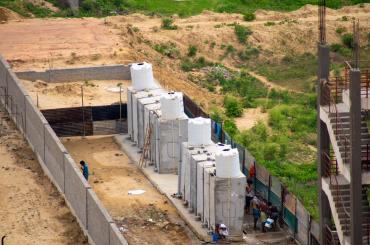

Britta Augsburg is Associate Director at the Institute for Fiscal Studies. She is an applied development economist, with a particular interest in environmental influences on child (health) outcomes, how they interact with other inputs - such as nutrition and stimulation -, and how policy can be used to target improvements in a child’s environment. She has 15 years’ experience in design and implementation of complex evaluations in LMIC’s, including India, Pakistan, Nigeria and Mongolia. Recent studies have focused on understanding both demand and supply constraints for poor households to improve their sanitation environment.
Recent work by Britta Augsburg
-

Policy lessons from new advances in sanitation economics
To effectively improve sanitation in low-income areas, policy must address a number of key issues, including credit market failures, environmental externalities, social preferences and low public sector capacity
Published 21.05.24
-

Increasing the adoption of safe sanitation infrastructure: Evidence from India
Labeled microcredit loans increase the take-up of safe toilets, but take-up and conversion are influenced by intra-household gender differences in perceptions and bargaining power
Published 22.03.23
-

Sustaining behavioural change: Evidence from rural Pakistan
Where community interventions lead to behaviour change, continued interactions are needed to help people maintain healthy behaviours
Published 10.10.22
-

Incentivising quality of public infrastructure excludes users and worsens public health
A study of community toilets in India shows importance of fully subsidising basic services and of measures to prevent overcrowding and degradation
Published 23.08.21
-

Can joint-liability microcredit help to share entrepreneurial risks? Insights from Mongolia
By allowing risk sharing, joint-liability lending can foster entrepreneurship among microcredit borrowers
Published 11.05.21
-

How women’s social networks vary with wealth and status: Evidence from India
Isolation is common amongst women living in contexts with restrictive gender norms but varies across socioeconomic groups
Published 15.02.21